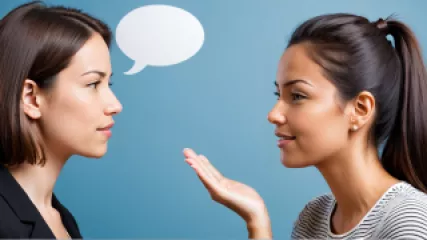Enhancing Empathy: The Key Role of Communication Skills in Therapy
Enhancing Empathy: The Key Role of Communication Skills in Therapy
Communication skills play a vital role in our everyday lives, influencing the quality of our relationships and shaping our personal growth. When it comes to therapy, effective communication becomes even more crucial as it serves as the foundation for building trust, understanding, and empathy between the client and the therapist. In this opinion piece, we will explore the significance of communication skills in therapy and how they contribute to enhancing empathy and facilitating personal growth.
Creating a Safe and Supportive Environment
Effective communication skills are essential for therapists to create a safe and supportive environment for their clients. By actively listening, expressing empathy, and providing non-judgmental feedback, therapists can establish a space where clients feel comfortable opening up and sharing their thoughts, feelings, and experiences. This safe environment allows clients to explore their emotions and challenges without fear of judgment or criticism.
Online support platforms for communication skills, such as video therapy sessions or chat-based counseling, have made it easier for individuals to access therapy from the comfort of their own homes. These platforms provide a convenient and accessible way for people to seek support and develop their communication skills, ultimately enhancing their ability to express themselves and connect with others.
Enhancing Listening Skills
Listening is a fundamental aspect of effective communication. Therapists who possess strong listening skills can truly understand their clients' experiences and perspectives. They can pick up on subtle cues, emotions, and underlying issues that may not be explicitly expressed by the client.
Coaching for clear communication can help therapists improve their listening skills. Through training and practice, therapists can learn to focus their attention on the client, demonstrate active listening, and ask clarifying questions when needed. This enables therapists to fully comprehend the client's needs and concerns, fostering a deeper level of understanding and empathy.
Fostering Empathy
Empathy is the ability to understand and share the feelings of another person. In therapy, empathy plays a pivotal role in building a strong therapeutic alliance and facilitating personal growth. When clients feel understood and validated by their therapists, they are more likely to trust the therapeutic process and engage fully in their own self-exploration.
Communication skills for personal growth can be developed through therapy. By actively practicing empathy, both therapists and clients can enhance their ability to connect with others on a deeper level. This not only benefits the therapeutic relationship but also has a positive impact on clients' relationships outside of therapy.
Developing Empathy through Therapy
Therapy itself serves as a powerful tool for developing empathy. As clients engage in therapy, they have the opportunity to explore their own emotions, thoughts, and behaviors while also gaining insight into the experiences of others. Through this process, clients can develop a greater sense of empathy and understanding towards themselves and those around them.
Therapists, on the other hand, can guide clients in developing empathy by modeling empathetic behavior and encouraging clients to consider different perspectives. By exploring diverse viewpoints and challenging preconceived notions, clients can expand their capacity for empathy and develop a more compassionate outlook.
Conclusion
Effective communication skills are a cornerstone of therapy, playing a vital role in enhancing empathy and facilitating personal growth. By creating a safe and supportive environment, enhancing listening skills, and fostering empathy, therapists can help their clients navigate their emotional landscapes and achieve meaningful personal transformation. Whether through traditional face-to-face therapy or online platforms, the power of communication skills in therapy should never be underestimated. It is through these skills that we can truly connect with others, understand their experiences, and grow both individually and collectively.






